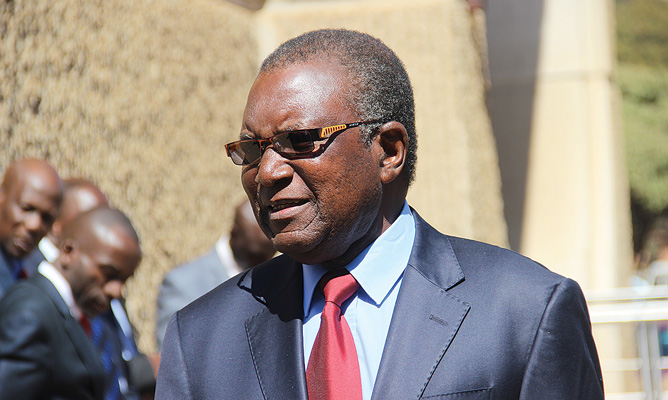
Transport and Infrastructure Development minister Joram Gumbo has revealed that the National Railways of Zimbabwe (NRZ) would be paying at least $1,8 million for leasing the recently-launched locomotives, while it awaits delivery of its consignment from South Africa.
BY XOLISANI NCUBE
In an interview with Southern Eye on his ministry’s 100-day target, Gumbo said to kickstart operations at NRZ, which has gone into partnership with Diaspora Infrastructure Development Group (DIDG), under a $400 million deal, the parastatal had to lease seven locomotives, 108 wagons and eight passenger coaches, procured from South Africa. “People must understand that this is an interim arrangement while Transnet and DIDG are manufacturing our new wagons, they have initially leased to us this equipment, so that NRZ can start to run at its normal capacity provisionally before the delivery of the proper new wagons, which will take almost 18 months,” he said.
“We are leasing the wagons and locomotives at $1,8 million for the entire duration and NRZ has the capacity to pay as from our look of things, we are happy to say that as we start to operate, NRZ will be making at about $2,8 million per month using this leased equipment.”
Gumbo said from its internal resources in the last 100 days, NRZ has refurbished 60 wagons to add to the leased fleet, as it seeks to improve capacity utilisation.
DIDG is a company founded and incorporated in Zimbabwe and South Africa and is spearheaded largely by locals based in that country. The long-term plan is to expand shareholding to all Zimbabweans, including those in the Diaspora.











